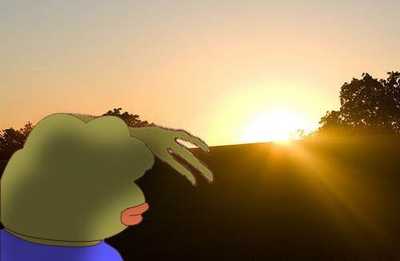>>3094To answer the question directly: no. Three arguments: the historical roots of the west in Christianity, the racial character of Islam, and the untruth of the magical claims in the Mosaic religions make it inappropriate as the religion of the restored west. I could go into more detail, but that's not really what your post is about. The interesting question you are asking is "is early islam a better historical analogue for our future resurgence than early christianity". The answer to that is maybe.
Christianity as you note is a sort of sincere and highly functional underclass solidarism for rotting favela-empires. This is hopefully not our future, but few would seriously claim it's not a plausible one. So the case for Christianity is that we're living in a world where a superstitious "slave morality" is optimal whether we like it or not. If you want a picture of the future, imagine the mighty being brought low and the meek inheriting the earth—for ever.
>our situation is that we're part of an emerging supercoordinating elite with the mandate of heaven, no particular need to mind-control a bunch of peasants, nor survive the horrifying conditions of a antique mediterranean urban center.This is wonderfully optimistic. Let's run with it. You aren't really asking what religion they (we) will have, but I will. The only basis for large-scale political coordination is some kind of sincere zeal capable of breaking through the old taboo and establishing itself as the new one. What is the taboo we are breaking through, and what is the new one that we believe in and will establish? I say "believe in" sincerely: the Platonic noble lie, argument for the transcendent from the practical, is a dead end.
Here's my view: due to the political events of the 20th century, we are stuck in a philosophical-religious dead end. The scientific-technical revolution of the past several hundred years, which was also a religious revolution, wants to culminate in a natural-biological view of man and society. In that worldview we leave behind the false metaphysical distinctions of the Mosaic/Platonic tradition (eg spirit/flesh, human/animal, morality/ecology, value/fact, person/nonperson, saved/damned, miracle/nature, heaven/earth, etc). Most controversially this hits the issue of eugenics: if man is a natural product of breeding, then the quality of the race is at least a core priority of the state. But the factions allied to this view lost the wars and revolutions of the 20th century to a reactionary anti-eugenic egalitarian irrationalism, which established itself as the dominant taboo, and eugenic thought as beyond the pale. Eugenic thought being one of the natural conclusions of the scientific thought our civilization is built on, this puts us in a deadlock.
What you're seeing now with the emerging new elite (which may or may not succeed) is the slow and reluctant breakdown of that core taboo of post-20th-century. Non-egalitarian scientific eugenic philosophy is coming back, or at least political philosophy open to breaking that taboo, and this more than anything else is the driving faith, the revolutionary zeal, of the new elite.
Is that like Islam? Maybe. It's like some other things too. And unlike them. How does it work as the operating system of society or as a historical event? We don't know. We have to study and synthesize and fight to find out. But that's what I live for.
As for early Islam, I agree we should study closely. I liked the Muqaddimah but it's hardly contemporary.
